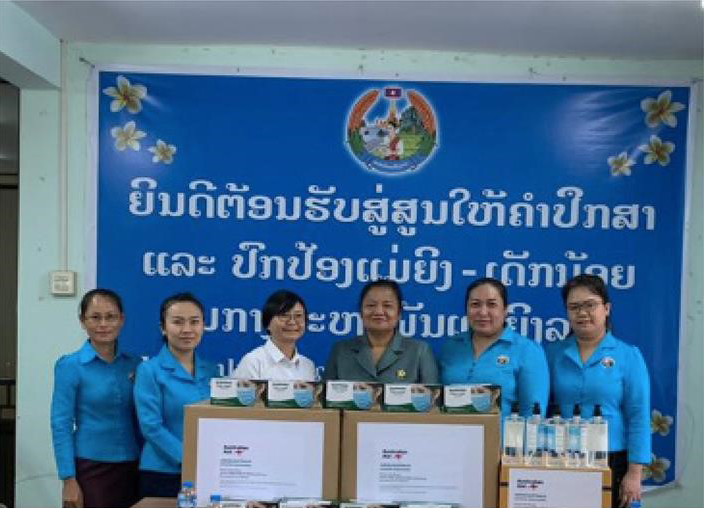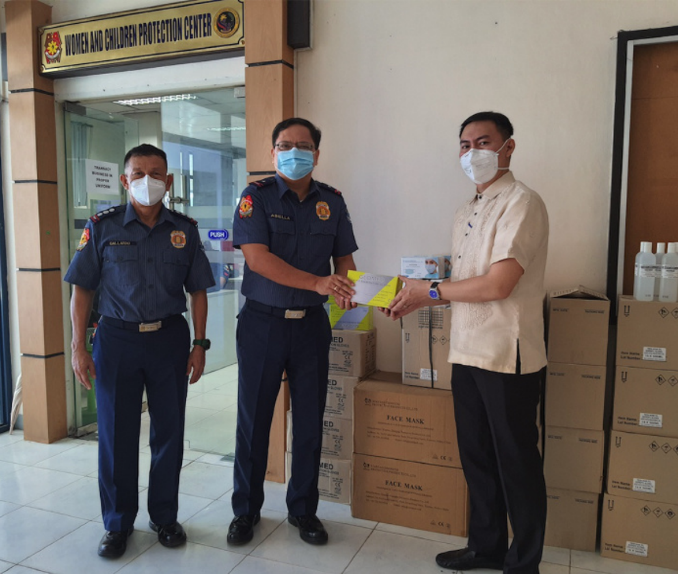On 30 July, we mark the World Day Against Trafficking in Persons. This year’s theme of ‘Committed to the Cause – Working on the Frontline to End Human Trafficking’ provides a timely opportunity to reflect on the impact of Australia’s efforts with ASEAN to support those who work so hard to prevent human trafficking and protect trafficking victims.
Economic growth and increased labour mobility have provided countries in ASEAN with great opportunity. At the same time, the risk of exploitation has grown. Human trafficking and forced labour undermine the rule of law and threaten stability in our region. The International Organization for Migration has estimated that up to 800,000 people are trafficked across international borders each year, and, on any given day, 2.5 million people are in forced labour as a result of human trafficking.
The ASEAN-Australia Counter-Trafficking (ASEAN-ACT) program builds on Australia’s 15-year partnership with ASEAN countries to counter human trafficking. Our work with justice agencies is more important than ever during the COVID-19 pandemic when there is a risk that human traffickers will take advantage of people’s increased economic, gender and health vulnerabilities.
Australia is adapting its development partnerships to minimise the impact of COVID-19 in our region. Our Partnerships for Recovery policy places a strong focus on Southeast Asia and emphasises ASEAN centrality. We seek to support our neighbours to contribute to a stable, prosperous and resilient Indo-Pacific region by directing our response efforts to areas where we can have the strongest impact.
In line with this policy, ASEAN-ACT has pivoted to respond to the immediate and longer-term challenges presented by COVID-19. This includes providing much-needed personal protective equipment to frontline responders, supporting counter trafficking programs to adjust their practices to pandemic conditions, and assisting partners to target activities to the most vulnerable.
This year’s World Day against Trafficking in Persons theme highlights that we too often forget about the frontline responders working tirelessly to prevent human trafficking and protect trafficking victims. Through ASEAN-ACT, Australia is supporting these frontline responders including, police who identify victims and investigate traffickers, the organisations and NGOs that support and counsel trafficking victims, and many others involved in seeking justice for victims.
ASEAN-ACT has provided hand sanitiser, soaps, thousands of masks, gloves and disinfectant to departments and organisations responsible for identifying and punishing human traffickers in seven ASEAN Member States. This has helped to ensure that frontline responders can continue their essential work safely.
ASEAN-ACT’s program in the Philippines is another example of responsiveness during the pandemic. Recognising the need to care for the mental health of their staff amid COVID-19, ASEAN-ACT provided communication equipment to the Women and Children Protection Centre of the Philippines National Police to establish an online psychosocial first aid initiative. Counter-trafficking staff at the Centre are regularly identifying traffickers and supporting victims, many of whom are children.
It is through regional partnerships, like ASEAN-ACT, that we can work to end the abhorrent crime of human trafficking and maintain a stable and prosperous region. Our regional cooperation on trafficking helps keep Australians and those who are vulnerable in other countries safe and secure.
Australia has also worked with co-chair Indonesia, through the Bali Process, for close to two decades to provide a forum for the region to cooperate and share best practice to tackle the consequences of people smuggling, trafficking in persons and related transnational crime.
Australia remains committed to working with our ASEAN partners to combat human trafficking. Importantly, in line with the World Day Against Trafficking in Persons theme, this includes support to critical frontline workers to ensure that even amidst the challenges of the COVID-19 pandemic they can continue to safely undertake their critical work.


